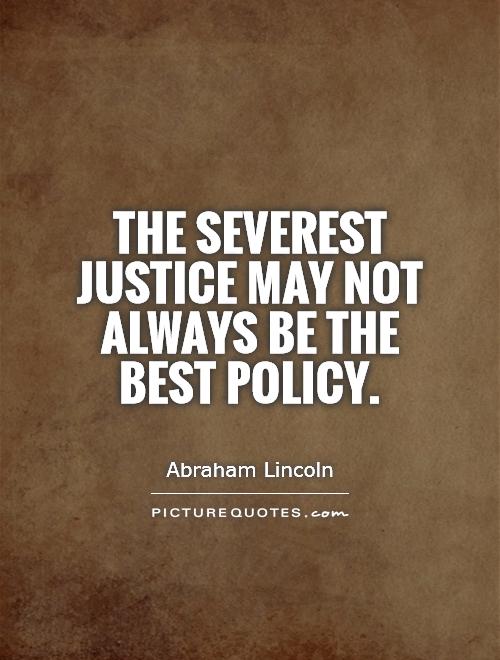The severest justice may not always be the best policy

The severest justice may not always be the best policy
Abraham Lincoln, the 16th President of the United States, is often remembered for his commitment to justice and equality. However, Lincoln also understood the complexities of justice and the importance of balancing severity with mercy. In his famous quote, "The severest justice may not always be the best policy," Lincoln acknowledges that sometimes a more lenient approach may be more effective in achieving long-term goals.Throughout his presidency, Lincoln faced numerous challenges that tested his beliefs in justice and fairness. One of the most significant decisions he made was the Emancipation Proclamation, which declared all slaves in Confederate-held territory to be free. While this was a bold and necessary step towards ending slavery, Lincoln also recognized the need for reconciliation and healing in the aftermath of the Civil War. He understood that imposing harsh punishments on the defeated Confederacy would only deepen the wounds of division and hinder the process of rebuilding the nation.
Lincoln's approach to justice was also evident in his handling of the Reconstruction period following the Civil War. Despite the deep-seated animosity between the North and South, Lincoln advocated for a more lenient policy towards the former Confederate states. He believed that offering amnesty and forgiveness to those who had fought against the Union would help to foster unity and promote reconciliation. While some criticized Lincoln for being too lenient, he remained steadfast in his belief that a more merciful approach was essential for the healing of the nation.












 Friendship Quotes
Friendship Quotes Love Quotes
Love Quotes Life Quotes
Life Quotes Funny Quotes
Funny Quotes Motivational Quotes
Motivational Quotes Inspirational Quotes
Inspirational Quotes